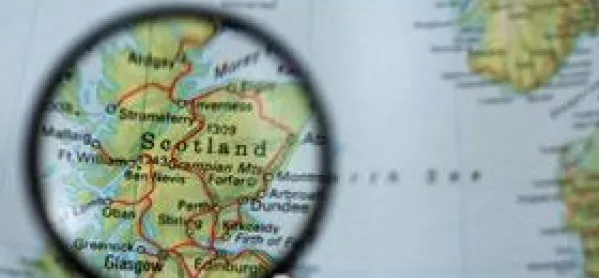Scotland sits with Third World nations

Scotland is languishing in the company of Third World countries when it comes to the performance of 10- and 14-year-olds in maths and science.
Landmark findings from the 2007 Trends in International Mathematics and Science Study (TIMSS) could well spell the end of the self-congratulatory mantra that “Scottish schools perform well by international standards.”
Scotland was placed 20th out of 36 countries in maths performance in P5, and 22nd in science. In S2, Scotland was 14th out of 49 countries in maths and 15th in science. This is below the TIMSS average on all counts except for P5 science, where Scottish pupils were on the average.
In an unprecedented response to one of the bleakest findings on Scottish schools for many years, Fiona Hyslop, the Education Secretary, has ordered an immediate analysis by her officials prior to a “top-level summit” of science educators and business representatives early in the new year.
Ms Hyslop declared the latest TIMSS results “alarming” and “completely unacceptable”.
The results show that Scotland has virtually stood still since the previous TIMSS survey of 2003, although there was a small improvement in the rankings for S2 science (Scotland was 19th out of 45 countries five years ago).
More galling for ministers is the fact that England has surged ahead and beats Scotland in all four tests. Its pupils are now the highest achievers in Europe at ages 10 and 14; in science, English 14-year-olds are in the world top five (compared to Scotland’s 15th place).
Ms Hyslop could afford to be sharply critical of the results since she was able to blame a situation she “inherited” from the previous LabourLiberal Democrat Scottish Executive.
She was particularly concerned that only 51 per cent of P5 pupils and 68 per cent of S2 pupils are taught science by teachers who feel “very well prepared” to do so.
“This survey highlights unacceptable failings in maths and science in Scotland’s schools and confirms the urgent need to act,” Ms Hyslop said.
“During the last administration, the achievement of Scots pupils fell back between 2003 and 2007 compared to other countries. There is no doubt this Government has inherited a great challenge and it is for us - now - to take action.
“This survey paints a picture of Scotland standing still while other nations pushed by. We will not allow this to happen. We will continue to take steps to address the science and maths challenge faced by Scotland.”
Pledging to halt the decline, she continued: “This survey also reveals that too many teachers lack confidence. This needs to be tackled if we want our young people to take science forward.
“I have said repeatedly that science is central to our future economic success. To have the situation where half our primary pupils are taught science by teachers who don’t feel very well prepared is alarming. To have a third of S2 pupils in the same position is completely unacceptable.”
The highest performers in the TIMSS survey are Asian students. Hong Kong, Singapore, Taiwan and Japan top the table in both science and maths among 10 year olds - with scores ranging from 548 to 607, compared with Scotland’s 494 in maths and 500 in science.
Among 14 year olds, those same four countries and South Korea out-perform all others, scoring averages from 553 to 598; Scottish S2 pupils managed to achieve just 487 in maths and 496 in science.
The Government says it has already taken steps to improve the position:
- Pounds 2 million investment in continuing professional development for science teachers
- the planned Scottish science baccalaureate
- the launch of the Science for Scotland framework last month
- providing Pounds 140,000 for 60 schools to develop science clubs, specifically targeted on the P6-S2 years
- additional funding of Pounds 250,000 for the four science centres, specifically to help science teachers improve their professional skills.
Ms Hyslop continues to invest her best hope for improvement in A Curriculum for Excellence, despite signs of faltering progress because of council budget restrictions. And she warned that she expected primary schools in particular to be embracing the new science curriculum from 2009, despite her decision to delay general implementation until the following year.
“Maintaining drive and momentum in implementing A Curriculum for Excellence is key,” Ms Hyslop added.
The TIMSS results were based on assessments taken by 8,000 pupils in 139 Scottish primaries and 129 secondaries.
Leader, page 24.
Keep reading for just £1 per month
You've reached your limit of free articles this month. Subscribe for £1 per month for three months and get:
- Unlimited access to all Tes magazine content
- Exclusive subscriber-only stories
- Award-winning email newsletters

